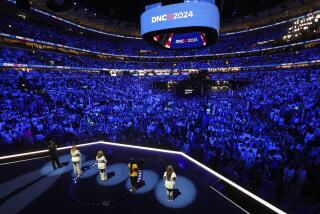Tears, and Vows to End the Killings
- Share via
They’ve cried, and they’ve marched, and they’ve attended the funerals of their children and fear they’ll do more of all that. But they were determined to do something other than grieve as they gathered on a sunny Saturday morning in an art-filled nook at Lucy Florence Coffeehouse in Leimert Park.
“I lost my 13-year-old in 1988. That was the hardest thing I ever had to do -- bury my 13-year-old child who was shot 15 times,” said Charlotte Austin-Jordan, clear-eyed and calm. In addition to the daughter she spoke of, she also lost a 25-year-old son in 1996 to violence.
“I could march all day and talk about the problem, but solutions are what I want to talk about,” she said.
As part of the weekly forum, Los Angeles Urban Policy Roundtable, Austin-Jordan sat on a two-person panel before an audience of 30 bereaved relatives, residents and community activists. They came to brainstorm on how to end the scourge of gang violence.
“This is not to vent,” Earl Ofari Hutchinson, an author and political analyst who runs the Roundtable series, gently warned the group at the outset. “We want something to come out of this.”
Those in attendance insisted that more people had to get involved in determining the future of their community -- whether it was helping police with information, decrying glorified images of gang violence in movies and music or demanding more action from city officials. Hutchinson renewed his call for a citywide, city-sponsored summit on gang-violence reduction.
After her son’s murder, Austin-Jordan founded the organization Save Our Future to work with 14- to 19-year-olds who are vulnerable to the lure of gangs.
“I want to help them to function and operate as positive citizens,” she said later. “They’re men, they’re women who have to eat. If they’re not taught how to get a job, we’ll be their victims.”
Throughout the morning, the anguish of the survivors was an inescapable undercurrent that carried the discussion away from its goal at times.
“I lost my first-born son,” said Vincent Hollier. “I lost my guy -- they came to his house and did a home-invasion robbery. Dec. 13, 1998. He died protecting his brother, fighting back. I was proud of that.... He died at Cedars after four hours.
“The guy came down and told me, ‘Sorry, your son did not survive,’ ” said Hollier, his voice suddenly shaking with a sob. He quickly recovered and promised to offer solutions. “Forget my war story,” he said.
But he went on with his war story about launching his own investigation into his son’s murder. The panelists walked a delicate line between respecting his grief and nudging him to get to his solutions.
The discussion moved to the issue of unsolved murders in the city -- and what Hutchinson later called “a conspiracy of silence” among fearful witnesses to gang shootings.
“The difference that we’re not recognizing in capturing these killers is our personal participation,” said Sister Herron, the other panelist.
“Thank you!” cried Hollier in agreement.
“We hide these young men, we protect them, we cover up for them,” said Herron, who works with Austin-Jordan in her organization. Herron has not had a child killed but calls herself “a soldier in this war.”
Several forum participants said they wanted more than just platitudes from Los Angeles Mayor James K. Hahn and City Councilman Antonio Villaraigosa, who face each other in a mayoral runoff election next month.
Said one woman in the audience: “We have to let Villaraigosa and Mayor Hahn know, ‘We’re not playing with you guys any more. I don’t want to see any more politicians at a wake being televised. I want to see what happened after you were on TV.’ ”
A Mother’s Day rally is also planned at Leimert Park.
“Be a part of Mothers On the March on May 7,” Austin-Jordan urged, promising it would be more than a march. “I’ve marched up and down this city, and I’m tired. I’m saying come together as a group.”
More to Read
Sign up for Essential California
The most important California stories and recommendations in your inbox every morning.
You may occasionally receive promotional content from the Los Angeles Times.











